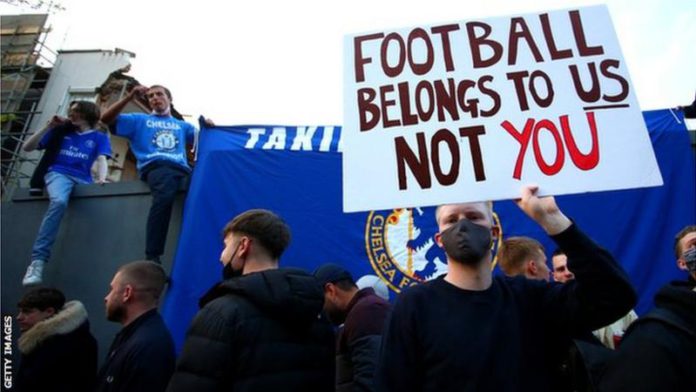European football governing body, UEFA has responded to the final ruling declared by the European Court of Justice amidst the Super League brouhaha.
After ruling that preventing the new competition was illegal under EU law, judges at the European Court of Justice may allow the Super League to resume.
With its decision on the proposed Super League, the European Court of Justice has dealt a blow to FIFA and UEFA. The European Court of Justice (ECJ) has ruled that it is illegal to prevent the competition from forming, which could lead to its revival.
The ruling, though, will be viewed as a setback to FIFA’s and Uefa’s authority and ability to control the game.
According to the report, when new contests are “potentially entering the market” Fifa and Uefa must ensure their powers are “transparent, objective, non-discriminatory and proportionate”.
Following this UEFA has released a statement after the European Court of Justice verdict on the European Super League saga.
Read the full statement below;
“UEFA takes note of the judgment delivered today by the ECJ in the European Super League case”. “This ruling does not signify an endorsement or validation of the so-called ‘super league’; it rather underscores a pre-existing shortfall within UEFA’s pre-authorisation framework, a technical aspect that has already been acknowledged and addressed in June 2022.
UEFA is confident in the robustness of its new rules, and specifically that they comply with all relevant European laws and regulations. UEFA remains resolute in its commitment to uphold the European football pyramid, ensuring that it continues to serve the broader interests of society. We will continue to shape the European sports model collectively with national associations, leagues, clubs, fans, players, coaches, EU institutions, governments and partners alike.
We trust that the solidarity-based European football pyramid that the fans and all stakeholders have declared as their irreplaceable model will be safeguarded against the threat of breakaways by European and national laws”.

